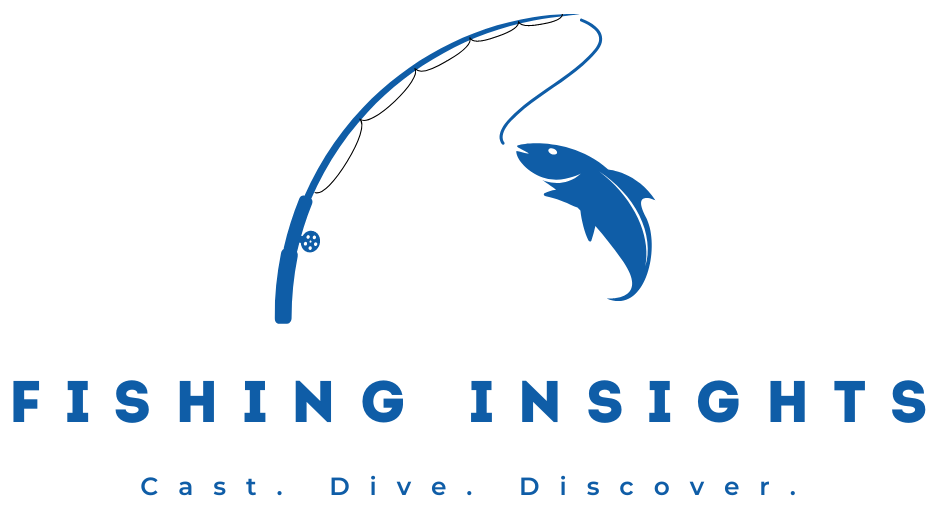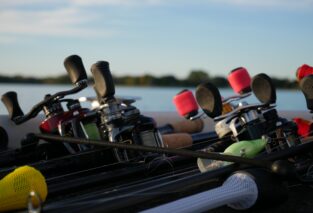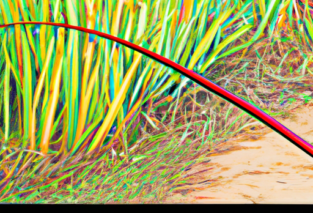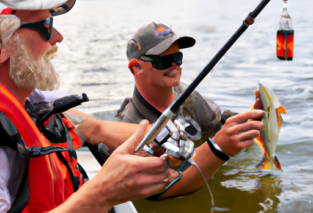If you’re a beginner angler looking to try your hand at fishing, you may find yourself faced with the question of whether to start with freshwater or saltwater fishing. It’s a common dilemma, and one that can seem daunting for those new to the sport. However, fear not! In this article, we’ll explore the pros and cons of both freshwater and saltwater fishing, helping you make an informed decision and set you on the path to reeling in your first catch with confidence.

Benefits of Freshwater Fishing
Abundance of fish species
One of the major advantages of freshwater fishing is the abundance of fish species that you can target. Whether you prefer catching bass, trout, catfish, or sunfish, you’ll find plenty of opportunities in freshwater bodies like lakes, rivers, and ponds. Each species offers its own unique challenge and excitement, keeping your fishing adventures diverse and thrilling.
Cost-effective
Freshwater fishing is a great option for beginners on a budget. Compared to saltwater fishing, the equipment and gear needed for freshwater fishing are generally more affordable. You can start with a basic rod and reel combo, a tackle box filled with a variety of lures, and some hooks and weights. Additionally, freshwater fishing licenses are often less expensive than saltwater licenses, making it an accessible and cost-effective hobby.
Accessible locations
Whether you live near a lake, river, or pond, freshwater fishing offers a wide range of accessible locations. Unlike saltwater fishing, which often requires a boat to reach offshore spots, you can easily find freshwater fishing spots close to home. This accessibility allows you to spend more time on the water, honing your skills and enjoying the serenity of nature.
Simplicity of equipment
Freshwater fishing equipment is generally simpler and easier to use compared to saltwater gear. You don’t need to worry about the corrosive effects of saltwater, which can damage reels and other equipment. With a basic rod and reel, some fishing line, and a selection of lures, you can get started on your freshwater fishing journey without the need for complex or specialized gear.
Wide range of fishing techniques
Freshwater fishing provides a plethora of fishing techniques for you to master. Whether you want to try your hand at casting, trolling, fly fishing, or even ice fishing during the winter months, there is always a new technique to explore and learn. This variety allows you to adapt and experiment with different techniques based on the species you’re targeting and the fishing conditions.
Challenges of Freshwater Fishing
Weather dependency
While freshwater fishing offers numerous advantages, it does come with its own set of challenges. One of the main challenges is the dependency on weather conditions. Unfavorable weather, such as heavy rain or strong winds, can make fishing difficult and even dangerous. It’s important to monitor weather forecasts and choose the right time and conditions for your fishing trips.
Limited trophy-sized fish
Freshwater fishing tends to have fewer trophy-sized fish compared to saltwater fishing. If you’re seeking the thrill of catching large and impressive fish, freshwater fishing may not always satisfy that desire. However, this challenge can be overcome by targeting specific species known for their size, such as trophy bass or trout, and exploring popular fishing destinations where larger fish are more plentiful.
Seasonal fluctuations
Freshwater fishing is also subject to seasonal fluctuations. Fish have different feeding patterns and behaviors throughout the year, which can affect your chances of catching them. It’s essential to understand the seasons and their impact on fish activity to maximize your fishing success. Adjusting your techniques, bait choices, and fishing locations accordingly will greatly improve your odds of reeling in a catch.
Potential for overcrowding
Popular freshwater fishing spots, especially during peak seasons, can become crowded with fellow anglers. This can reduce the tranquility and serenity of your fishing experience, as well as increase the competition for the best fishing spots. However, with a bit of research and flexibility, you can find less crowded areas or plan your fishing trips during weekdays or off-peak seasons to avoid the crowds and enjoy a more peaceful fishing outing.
Vulnerable fish populations
Due to the increasing human impact on freshwater ecosystems, fish populations can become vulnerable and face threats such as habitat degradation, pollution, and overfishing. As an angler, it’s crucial to practice ethical and sustainable fishing. Adhering to catch limits, practicing catch-and-release, and respecting fishing regulations will help protect and conserve the fish populations for future generations to enjoy.
Skills to Develop for Freshwater Fishing
Casting techniques
Developing proficient casting techniques is essential for freshwater fishing success. Whether you’re casting from the shore or a boat, mastering accurate and efficient casting will greatly increase your chances of placing your bait or lure in spots where fish are likely to be waiting. Practice different casting techniques, such as overhead casting, sidearm casting, and roll casting, to enhance your fishing skills.
Knot tying
Knowing how to tie strong and reliable knots is crucial in freshwater fishing. A secure knot ensures that your hook or lure stays attached to your line, preventing any potential lost catches. Practice tying common knots like the improved clinch knot, Palomar knot, and the loop knot to equip yourself with the necessary skills for any freshwater fishing situation.
Fish identification
Being able to identify different fish species is essential for responsible fishing and complying with fishing regulations. Familiarize yourself with the common fish species in your local freshwater bodies. Learn to differentiate between bass, trout, catfish, and other popular catches. Not only will this knowledge enhance your fishing experience, but it will also help you make informed decisions about which fish to keep or release.
Proper handling and release
Taking care of the fish you catch is vital for their survival after release. Learn proper handling techniques, such as wetting your hands before touching the fish to prevent damage to their protective slime coating, supporting the fish from underneath its belly, and using appropriate tools like landing nets or lip grips. By handling fish responsibly, you can increase their chances of survival after being caught and released.
Fish behavior understanding
Understanding fish behavior can significantly improve your freshwater fishing success. Learn about the feeding habits, preferred habitats, and seasonal patterns of the fish species you’re targeting. This knowledge will allow you to select the most effective baits or lures and adapt your fishing techniques to attract and entice the fish. Observing the water and noticing signs of fish activity can also help you locate feeding areas and increase your chances of catching fish.
Benefits of Saltwater Fishing
Opportunity for larger and diverse fish species
Saltwater fishing opens up a whole new world of opportunities when it comes to catching larger and more diverse fish species. Whether you have your eyes set on landing a trophy-sized marlin, tuna, snapper, or shark, the vastness of the ocean offers endless possibilities. The adrenaline rush that comes with battling these powerful creatures is unmatched and provides an exciting challenge for anglers.
Thrill of offshore adventures
Saltwater fishing often involves offshore adventures that take you far beyond the shore. Whether you’re fishing from a boat or even participating in deep-sea fishing charters, these offshore adventures offer a thrill and sense of exploration that freshwater fishing may not provide. The anticipation of what you might encounter in the deep waters creates an exhilarating experience that many anglers find addictively satisfying.
Breathtaking coastal scenery
One of the most captivating aspects of saltwater fishing is the breathtaking coastal scenery that surrounds you. As you venture out into open waters, you’ll be treated to stunning vistas of the coastline, with picturesque sunsets and seascapes providing the perfect backdrop for your fishing escapades. The sense of tranquility and connection to nature that saltwater fishing provides is truly unique and unforgettable.
Varied fishing environments
Saltwater fishing allows you to explore a wide range of fishing environments, from rocky cliffs and sandy beaches to coral reefs and tidal flats. Each environment presents its own set of challenges and rewards, requiring different techniques and gear. Whether you’re fishing inshore, nearshore, or offshore, the diverse fishing environments in saltwater provide endless opportunities to expand your angling skills.
Potential for trophy catches
Saltwater fishing is renowned for the potential to catch trophy-sized fish. The ocean is home to some of the most sought-after game fish that can reach impressive sizes, attracting anglers from around the world. The opportunity to tangle with species like sailfish, tarpon, or giant grouper is a dream come true for many anglers. If you’re motivated by the pursuit of trophy catches, saltwater fishing will provide you with the excitement and challenge you seek.
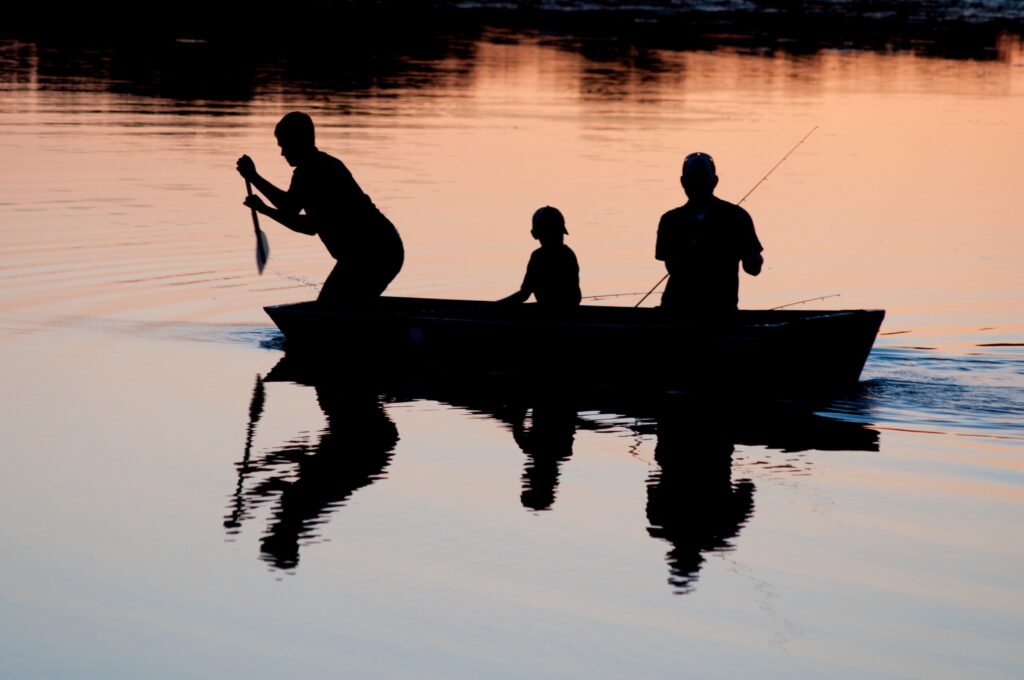
Challenges of Saltwater Fishing
Higher cost and maintenance
Saltwater fishing can be more expensive compared to freshwater fishing. Saltwater can be corrosive to fishing gear, requiring regular maintenance and the use of specialized equipment designed to withstand the harsh saltwater environment. Saltwater reels, rods, and tackle are typically more expensive than their freshwater counterparts due to their durability and resistance to corrosion.
Need for specialized gear
To be successful in saltwater fishing, you’ll need specialized gear tailored to the challenges posed by the ocean environment. This may include heavier rods and reels, corrosion-resistant materials, and specific lures or baits designed to attract saltwater species. Investing in the right gear can greatly enhance your chances of landing fish in saltwater, but it’s important to consider the cost and requirements associated with acquiring and maintaining this specialized equipment.
Learning curve for boat handling
Saltwater fishing often involves fishing from boats, requiring some knowledge and experience in boat handling. Navigating through potentially rough waters, understanding navigation charts, and utilizing fishing electronics are all skills that may need to be developed to fully enjoy saltwater fishing. Taking the time to learn and practice these skills will enhance your safety on the water and increase your access to prime fishing locations.
Weather-dependent
Saltwater fishing is highly weather-dependent due to the impact of wind, waves, and tides. Unfavorable weather conditions can make venturing into saltwater unsafe and fishing unproductive. Monitoring weather forecasts and understanding the effects of weather patterns on the ocean are crucial for planning your saltwater fishing trips. Flexibility and adaptability are key when dealing with the unpredictable nature of the ocean environment.
Rougher water conditions
Compared to the calm and serene waters of freshwater bodies, saltwater fishing often takes place in rougher water conditions. Swells, currents, and choppy waves can create a more physically demanding environment that requires stability and balance. It’s important to be prepared for these rough water conditions and consider your own comfort level and physical capabilities before venturing into the open ocean.
Skills to Develop for Saltwater Fishing
Trolling techniques
Trolling is a common and effective technique used in saltwater fishing. Learning various trolling methods, such as surface, mid-depth, and deepwater trolling, will allow you to cover more water and increase your chances of attracting fish. Understanding the use of downriggers, planers, and outriggers will help you present your baits or lures at the desired depths and create a realistic presentation to entice saltwater species.
Boat navigation
Being able to navigate effectively on the water is essential for saltwater fishing. Learning basic navigation skills, such as reading nautical charts, using GPS and radar systems, and understanding buoy systems will help you safely navigate to and from fishing spots. Familiarize yourself with local regulations and navigational markers to ensure compliance and prevent accidents on the water.
Bait and lure selection
Saltwater fishing requires careful consideration when it comes to bait and lure selection. Saltwater species often have different preferences and feeding habits compared to their freshwater counterparts. Research and experiment with different baits such as live bait, cut bait, or artificial lures to determine what works best for specific saltwater species. Understanding the prey species and matching your bait presentation accordingly will greatly increase your chances of success.
Understanding tides and currents
In saltwater fishing, the tides and currents play a significant role in determining the feeding patterns and movements of fish. Understanding how tides and currents affect the behavior of the fish you’re targeting will help you plan your fishing trips more effectively. Learn about tide charts, tidal currents, and their impact on specific fishing spots to maximize your fishing opportunities.
Fish cleaning and preservation
Once you’ve successfully caught fish in saltwater, proper cleaning and preservation techniques are essential. Saltwater species can deteriorate quickly if not handled and preserved correctly. Learn how to clean and fillet fish properly, removing any bones or skin, and promptly chill or freeze them to maintain their quality and taste. Proper fish cleaning and preservation techniques ensure that you can fully enjoy the fruits of your saltwater fishing efforts.

Factors to Consider for Beginner Anglers
Budget and expenses
Before diving into the world of fishing, it’s essential to consider your budget and expenses. Fishing can become an expensive hobby, especially if you opt for saltwater fishing or invest in high-quality gear. Evaluate your financial resources and set a budget that works for you, ensuring you can comfortably purchase necessary equipment, fishing licenses, and cover any other associated costs.
Availability of fishing spots
Consider the availability of fishing spots in your area. If you live closer to freshwater bodies like lakes or rivers, freshwater fishing may be more accessible and convenient for you. On the other hand, if you have easy access to coastal areas or saltwater locations, saltwater fishing might be a viable option. Assess the proximity of fishing spots to your home and determine which type of fishing is more practical for your situation.
Time commitment
Fishing requires time and dedication, so it’s important to consider your availability and time commitment. Freshwater fishing trips can be shorter in duration, as you can usually find suitable fishing spots close by. Saltwater fishing, especially offshore adventures, often requires a longer time commitment due to the distance and preparation involved. Assess your schedule and consider the time you can realistically allocate to fishing activities before deciding which type of fishing is best for you.
Preference for high-action or calm fishing
Think about your personal preference for the type of fishing experience you desire. Freshwater fishing offers a more calm and peaceful environment, ideal for those seeking relaxation and solitude on the water. Saltwater fishing, on the other hand, tends to be more action-packed and adrenaline-fueled, with the potential for bigger catches and offshore adventures. Consider whether you prefer a tranquil and serene fishing experience or the thrill of battling powerful saltwater species.
Desire for trophy or smaller catches
Consider your aspirations when it comes to the size and type of fish you want to catch. If you have dreams of landing trophy-sized fish, saltwater fishing might provide more opportunities. However, if you’re content with smaller catches and appreciate the variety of freshwater species, freshwater fishing can be equally fulfilling. Reflect on your goals as an angler and decide which type of fishing aligns with your desires.
Advice for Beginners
Start with freshwater fishing
As a beginner angler, it’s advisable to start with freshwater fishing. Freshwater fishing provides an excellent foundation for learning essential fishing skills and techniques without the added complexities of saltwater environments. The accessibility, abundance of fish species, and cost-effective nature of freshwater fishing make it an ideal starting point for beginners. As you gain experience and confidence, you can then venture into saltwater fishing if you desire.
Take fishing lessons or find a mentor
To accelerate your learning curve and become a more skilled angler, consider taking fishing lessons or finding a mentor. Fishing lessons can provide valuable guidance on casting techniques, knot tying, fish identification, and other essential skills. Alternatively, connecting with experienced anglers who are willing to share their knowledge can greatly enhance your understanding of fishing techniques and increase your chances of success.
Research and study local fishing regulations
Before casting your line, familiarize yourself with local fishing regulations and laws. Each fishing spot and body of water may have specific rules in place regarding catch limits, fishing seasons, and equipment restrictions. Research your local fishing regulations and abide by them to ensure the sustainability of fish populations and avoid any legal repercussions.
Invest in quality gear within budget
While fishing gear can vary in price and quality, it’s important to invest in gear that suits your needs and budget. Look for reliable and durable equipment that will withstand the rigors of fishing and last you a long time. It’s not necessary to splurge on expensive gear as a beginner, but prioritizing quality within your budget will ensure a more enjoyable and successful fishing experience.
Join fishing communities and clubs
One of the best ways to immerse yourself in the world of fishing is by joining fishing communities and clubs. These communities offer opportunities to connect with like-minded individuals who share your passion for fishing. You can learn from experienced anglers, exchange valuable tips and advice, and even participate in group fishing trips or tournaments. The camaraderie and support of fishing communities can greatly enhance your fishing journey and make it even more enjoyable.
In conclusion, both freshwater and saltwater fishing offer unique benefits and challenges for beginners. Consider factors such as budget, accessibility, desired fishing experience, and personal goals in order to make an informed decision. Whether you start with the tranquility of freshwater fishing or dive into the thrilling world of saltwater fishing, the key is to enjoy the journey, continuously learn and develop your skills, and respect the delicate balance of the natural environment. Happy fishing!

